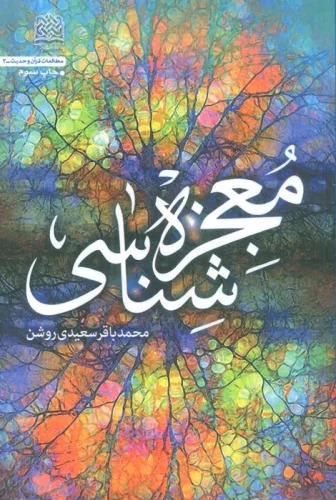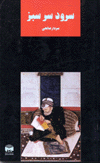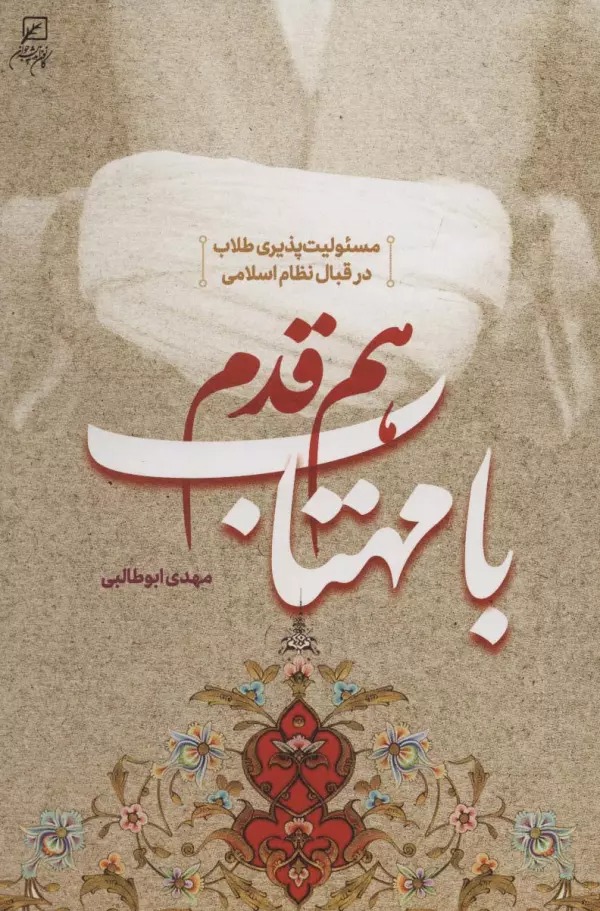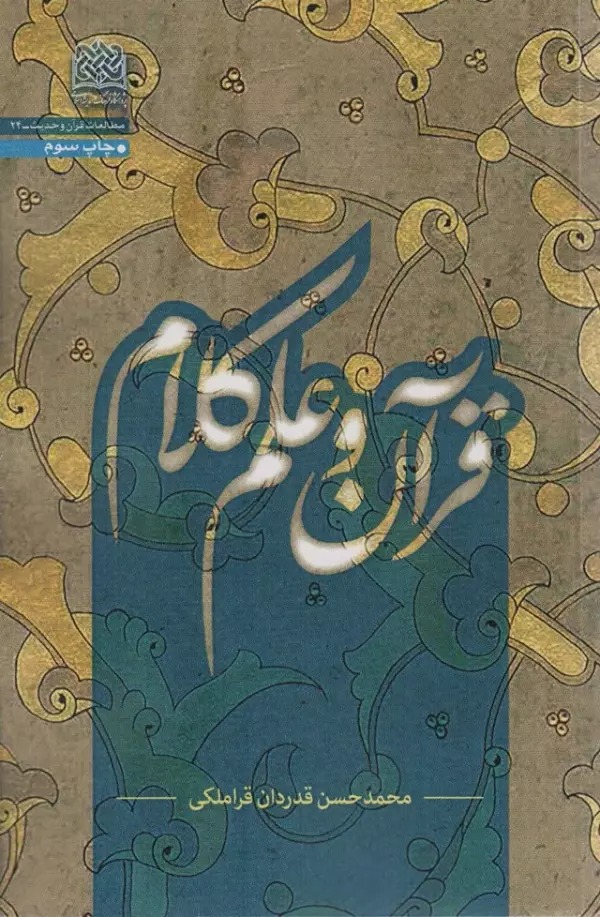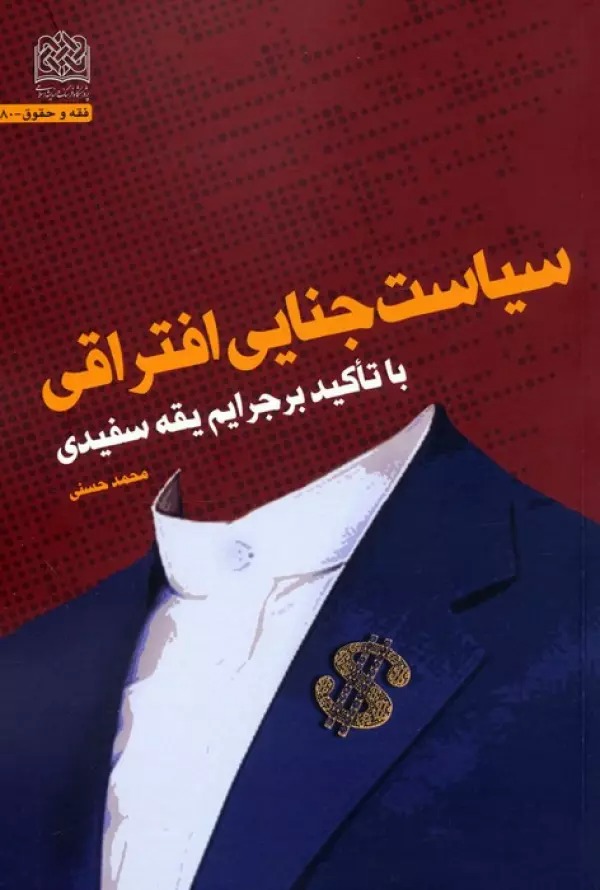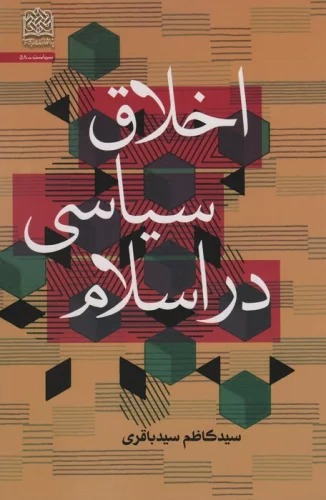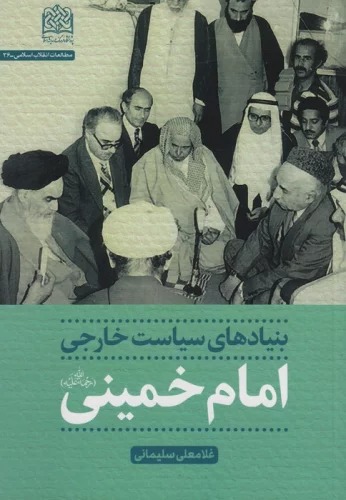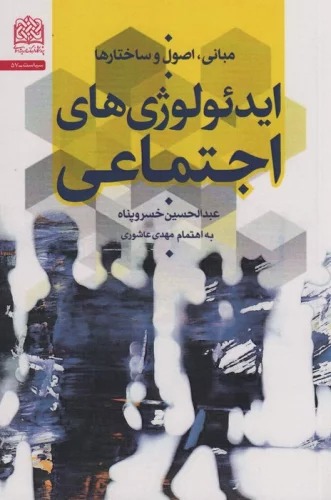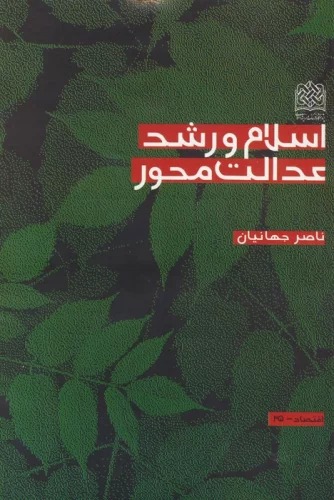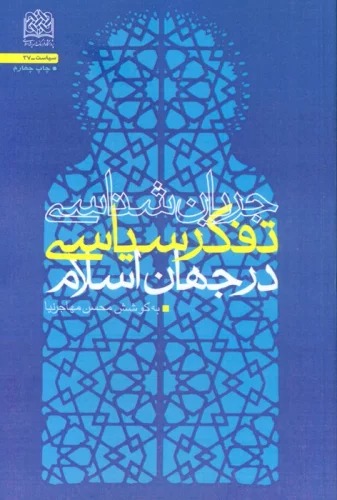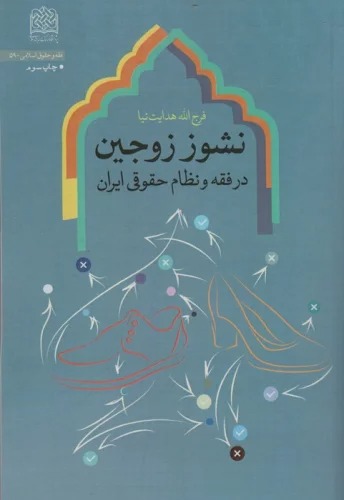Mu'jizah;shināsī: Persian 2023
معجزه شناسی
16.52 $
Share
Wishlist
Original Title:
معجزه شناسی
ISBN:
9786001080043
Publisher:
Pazhuhishgah-i Farhang va Andishih-yi Islami
Age Group:
Adult
Pages:
238
Weight:
265 g
Dimensions:
14 x 21 x 2.2 cm
Book Cover:
Paperback
Miracle in the word means to make incapable and in the term, it is an extraordinary thing that the prophets do to prove the claim of their divine mission and other people are unable and helpless to do the same. Ijaz is different from other habits. These two are different in purpose, territory, reference to the supernatural, manners and character of the performers, tools, and means. Miracles in traditional Christianity are events that have a supernatural factor, and in new Christianity, they are considered a kind of evasion from the order and law of nature and its contradictions. Due to the existence of an extraordinary force in humans, at least the possibility of miracles is proven. Things like artificial sleep, telepathy, and summoning spirits tell about this power. Acknowledging the sensual essence of man and its extraordinary power, as well as the unseen world and the kingdom, are known as two elements that create miracles. Historical and religious knowledge testify to both of these. Some have considered miracles to be against science and knowledge because according to them, science shows that no event in the universe occurs without a specific cause. In response, it should be said that miracles are not synonymous with authenticity and disorder, and on the other hand, pure empiricism cannot provide a plan for the lawfulness of the world. Sense and experience cannot deny the existence of phenomena outside their realm. But does a miracle contradict the principle of causality? Ash'ari does not accept the legality of the world system and does not consider God's power and providence to be bound by any rational constraint. In Kalam and Hikmat, many criticisms have been made of this theory. According to Shi'a belief, God's power, even though it is unlimited, does not belong to the ugly act, because God has nothing to do with defects and evil. But unlike Ash'are, some people also take the side of the world's causal system and try to explain the miracles of divine prophets. This nature-oriented thought considers all existence to be unique in natural and material affairs. It should be said that this wrong thought comes from a type of epistemology that is not compatible with religion. The Holy Quran has accepted the law of general causation, but it has also spoken about the influence of immaterial beings. But reason also considers it possible to accept a miracle and does not consider it an inherent impossibility or impossibility. The principle of causality is different from its examples and also includes a range beyond nature. Wisdom, the basis of miracles, is the proof of the divine mission of the prophets. To prove prophecy, there are various ways, and miracles are one of them. But does the presentation of miracles have a logical connection and intellectual connection with the proof of prophecy? Some have raised doubts in this context, which are based on a wrong image of the concept of miracles. One of the main debates is the difference between the prophets' miracles. In the religion of Islam, the Qur'an is the eternal verse of the last prophet (PBUH). The Qur'an itself has challenged its miracles. The quorum of this challenge is one surah and its temporal and spatial scope is unlimited. For some, the secret of human's inability to copy the Qur'an is to "purify" that is to deprive of the motivation and will of this work, and not its text. This theory is false and God's revelation has remained incomparable despite the unsuccessful efforts of opponents and disbelievers. The shores of miracles of the Qur'an are invisible. The external structure of the text of the Qur'an, i.e. arrays, words, rhetoric, order and style, imagery, allegory, metaphor and irony, and such things, is a horizon of the wonders of the Qur'an. Another reason is the existence of unique knowledge in the Quran, which is also from the Prophet Umi's tongue; knowledge such as the God of the world, man, prophecy, scientific references, and Quranic ethics. Avoidance of differences and contradictions is another miracle of the Qur'an.
All these horizons have been researched in detail in the history of Islamic thought. In the course of Islamic history, the idea of miracles has had a fast and wide-ranging movement. Examining the peaks of this thought in several different centuries informs about the unparalleled glory of the intellectual products of this field and makes us more familiar with the concept of miracles of the Qur'an.
more
اعجاز در لغت بهمعنای ناتوان کردن و در اصطلاح امر خارقالعادهای است که پیامبران بهمنظور اثبات ادعای رسالت خدایی خویش انجام میدهند و آدمیان دیگر از انجام مانند آن ناتوان و درماندهاند. اعجاز با سایر خوارق عادات تفاوت دارد. این دو، در هدف، قلمرو، استناد به فراطبیعت، سیره و منش مجریان، ابزارها و وسائل با هم متفاوتند. معجزه در مسیحیت سنتی به حوادثی گفته میشود که عامل فراطبیعی داشته باشد و در مسیحیت جدید، نوعی طفره و گریز از نظم و قانون طبیعت و مناقض آن شمرده میشود. با توجه به وجود نیرویی خارق عادت در انسان، دستکم امکان اعجاز ثابت میشود. مواردی چون خواب مصنوعی، تلهپاتی و احضار ارواح از این نیرو حکایت میکند. با اذعان به جوهر نفسانی انسان و توان فوقالعادة آن و نیز جهان غیب و ملکوت، دو عنصر سازندة اعجاز شناخته میشوند. معارف تاریخی و دینی به این هر دو گواهی میدهند. برخی اعجاز را با علم و دانش مخالف دانستهاند، زیرا به گفتة آنها علم نشان میدهد که هیچ رخدادی در جهان هستی بدون سبب خاص بهوجود نمیآید. در پاسخ باید گفت که اعجاز با تصادق و بینظمی مرادف نیست و از سوی دیگر، تجربهگرایی محض نیز نمیتواند درباره قانونمندی جهان طرحی ارائه دهد. حس و تجربه نمیتوانند وجود پدیدههایی خارج از قلمرو خود را نفی کنند. اما آیا اعجاز با اصل علیت تنافی دارد؟ اشاعره قانونمندی نظام جهان را نمیپذیرند و قدرت و مشیت خداوند را مقید به هیچ قید عقلی نمیدانند. در کلام و حکمت، نقدهای بسیاری بر این نظریه وارد آمده است. به اعتقاد شیعه، قدرت خداوند با آنکه نامحدود است، به فعل قبیح تعلق نمیگیرد، زیرا خداوند با نقصها و شرور هیچ سنخیتی ندارد. اما برخلاف اشاعره، عدهای نیز جانب نظام علّی معلولی جهان را میگیرند و میکوشند معجزات پیامبران الهی را توجیه و تأویل کنند. این اندیشة طبیعتمدار، همة هستی را منحصر در امور طبیعی و مادی میداند. باید گفت که این اندیشة نادرست از گونهای معرفتشناسی ناشی میشود که با دین و تدین سازگاری ندارد. قرآن کریم قانون علیت عمومی را پذیرفته است، اما از تأثیرگذاری موجودات غیرمادی نیز سخن گفته است. اما عقل نیز پذیرش معجزه را ممکن میداند و آن را محال ذاتی یا محال وقوعی بهشمار نمیآورد. اصل علیت با مصادیق آن متفاوت است و نیز گسترهای فراتر از طبیعت را شامل میشود. حکمت اساس اعجاز، اثبات رسالت الهی پیامبران است. برای اثبات نبوت، راههای گوناگونی وجود دارد که اعجاز یکی از آنهاست. اما آیا ارائة اعجاز پیوند منطقی و تلازم عقلی با اثبات نبوت دارد؟ برخی شبهاتی را در این زمینه مطرح ساختهاند که براساس تصویری نادرست از مفهوم معجزه است. یکی از بحثهای اساسی، تفاوت معجزههای پیامبران با یکدیگر است. در دین اسلام، قرآن، آیت جاویدان پیامبر خاتم(ص) است. خود قرآن دربارة اعجاز خود، تحدی کرده است. حد نصاب این تحدی هم یک سوره است و قلمرو زمانی و مکانی آن نامحدود. برخی راز ناتوانی بشر در مانندآفرینی قرآن را «صرفه» یعنی سلب انگیزه و ارادة این کار است و نه متن آن. این نظریه نادرست است و وحی خداوندی با وجود تلاشهای بیفرجام مخالفان و کافران، همچنان مانندناپذیر مانده است. کرانههای اعجاز قرآن ناپیداست. ساختار ظاهری متن قرآن، یعنی آرایهها، واژگان، بلاغت، نظم و اسلوب، تصویرپردازی، تمثیل، استعاره و کنایه و مواردی از این دست، یک افق از آفاق اعجاز قرآن است. دلیل دیگر، وجود معارف بیمانند قرآن، آن هم از زبان پیامبر امی است؛ معارفی چون خدای جهان، انسان، نبوت، اشارههای علمی، و اخلاق قرآنی. پیراستگی از اختلاف و تناقض نیز ساحت دیگر اعجاز قرآن است.
همة این آفاق به تفصیل در تاریخ فکر و اندیشه اسلامی مورد پژوهش قرار گرفتهاند. اندیشة اعجاز در گذر تاریخ اسلامی، حرکتی سریع و پردامنه داشته است. بررسی قلههای این اندیشه در چند قرن مختلف، از شکوه بیمانند فرآوردههای فکری این عرصه خبر میدهد و ما را با مفهوم اعجاز قرآن بیشتر آشنا میکند.
more

